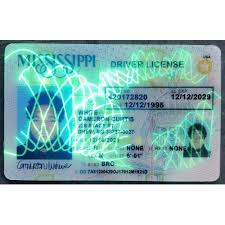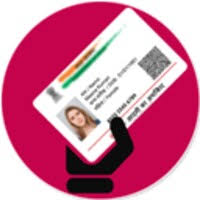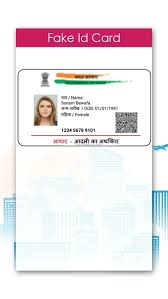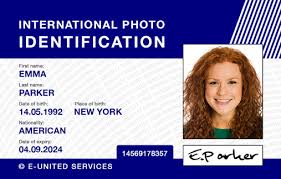best South Carolina Fake ID
Outline of the Article
- Introduction
- Overview of Fake IDs in South Carolina
- The Popularity of Fake IDs Amongst Students
- Why People Seek Fake IDs
- Legal Drinking Age in South Carolina
- Access to Clubs and Bars
- The Appeal of Being Older
- The Risks Involved with Using Fake IDs
- Legal Consequences
- Potential Criminal Charges
- Risks of Getting Scammed
- What Makes a Good Fake ID
- Quality of the ID Card
- Scannable Barcodes and Magnetic Strips
- Accurate Holograms and Watermarks
- Popular Fake ID Providers
- Online Marketplaces
- Word-of-Mouth Referrals
- Ratings and Reviews
- Spotting a Fake ID
- Tips for Bartenders and Bouncers
- Common Red Flags in Fake IDs
- Verification Tools Used by Businesses
- Legal Consequences of Using a Fake ID in South Carolina
- South Carolina Laws on Fake IDs
- Penalties for Possession and Use
- Potential Impact on Your Record
- How Authorities Crack Down on Fake IDs
- Collaboration Between Bars and Law Enforcement
- Technology and Fake ID Detection
- Sting Operations and Undercover Checks
- The Evolution of Fake IDs
- From Old-School Fakes to High-Tech Replicas
- Digital Advancements in Fake ID Creation
- Future Trends in Fake Identification
Alternatives to Using a Fake ID
- Patience Until Legal Age
- Attending Age-Appropriate Events
- Exploring Non-Alcoholic Venues
Stories from Users: Successes and Failures
- Real-Life Accounts of Fake ID Use
- Lessons Learned the Hard Way
- The Reality vs. Expectations
Ethical Considerations
- The Moral Implications of Using Fake IDs
- Impact on Society and Businesses
- Personal Responsibility and Decision-Making
Preventing the Use of Fake IDs
- Educating Youth on the Risks
- Parental Involvement and Guidance
- Community and School Programs
Conclusion
- Summary of Key Points
- Final Thoughts on Fake IDs in South Carolina
FAQs
- How common are fake IDs in South Carolina?
- Can using a fake ID lead to jail time?
- What should I do if someone offers to sell me a fake ID?
- Are there legal ways to enter clubs before turning 21?
- How do businesses in South Carolina verify the authenticity of IDs?
Best South Carolina Fake ID
Introduction
Getting a fake ID is often seen as a rite of passage for many young adults, particularly in places like South Carolina, where the legal drinking age is strictly enforced. Whether it’s to gain access to bars, buy alcohol, or simply to feel a little older, the demand for fake IDs is undeniable. However, with this desire comes significant risks, both legal and ethical. In this article, we’ll delve deep into everything you need to know about fake IDs in South Carolina, from why they’re sought after to the dangers they pose.

Why People Seek Fake IDs
Legal Drinking Age in South Carolina
The primary reason young adults seek fake IDs is to bypass the legal drinking age, which in South Carolina, as in the rest of the United States, is 21. For college students and high school seniors, this age limit can feel restrictive, especially when they see their peers enjoying the nightlife.
Access to Clubs and Bars
South Carolina is known for its vibrant nightlife, with clubs and bars that are the epicenter of social activity. However, most of these venues are strictly 21+, making a fake ID a golden ticket for underage individuals eager to join in on the fun.
The Appeal of Being Older
For some, it’s not just about alcohol or clubs; it’s about the allure of being seen as older and more mature. A fake ID can provide a sense of independence and adulthood, even if it’s just an illusion.
The Risks Involved with Using Fake IDs
Legal Consequences
Using a fake ID in South Carolina is a serious offense. If caught, you could face heavy fines, community service, or even jail time. The law doesn’t take this lightly, and the penalties can follow you for years.
Potential Criminal Charges
Beyond the immediate legal consequences, using a fake ID can lead to charges of fraud or identity theft, especially if the ID is sophisticated enough to mimic a real one. These charges can have long-lasting effects on your future, including your career and education opportunities.
Risks of Getting Scammed
The world of fake IDs is rife with scams. Many online sellers promise high-quality fakes but deliver nothing or provide subpar products that are easily detectable. Not only do you lose money, but you also risk exposing your personal information to potential identity thieves.
What Makes a Good Fake ID
Quality of the ID Card
A convincing fake ID needs to look and feel like the real thing. This includes the material, the finish, and the weight of the card. High-quality fakes are usually produced with the same materials used in legitimate IDs.
Scannable Barcodes and Magnetic Strips
One of the first things a bouncer or bartender might do is scan your ID. A good fake ID will have a scannable barcode and a functional magnetic strip. If these don’t work, it’s an immediate red flag.
Accurate Holograms and Watermarks
Holograms and watermarks are some of the hardest elements to replicate. A good fake ID will have these features accurately reproduced to match the state’s official ID.
Popular Fake ID Providers
Online Marketplaces
Many fake IDs are sold through online marketplaces. While these sites might look professional, they’re often illegal and risky to use. Some of these sellers operate in the dark web, making them even more dangerous to deal with.
Word-of-Mouth Referrals
Some people obtain fake IDs through personal connections. These are often perceived as more trustworthy because they come recommended by a friend, but they’re still illegal and risky.
Ratings and Reviews
Before purchasing a fake ID, many potential buyers scour the internet for reviews. However, it’s important to remember that these reviews can be fake or manipulated, so they’re not always reliable.
Spotting a Fake ID
Tips for Bartenders and Bouncers
Those working the doors at bars and clubs are usually the first line of defense against fake IDs. They’re trained to spot inconsistencies in the card’s appearance, feel, and details like birthdate and expiration date.
Common Red Flags in Fake IDs
Some common signs of a fake ID include blurry text, incorrect font, misspelled words, and uneven edges. Even slight imperfections can be a dead giveaway.
Verification Tools Used by Businesses
Many businesses now use advanced verification tools that can instantly detect fake IDs. These tools scan the barcode, magnetic strip, and even check the hologram’s authenticity.
Legal Consequences of Using a Fake ID in South Carolina
South Carolina Laws on Fake IDs
South Carolina has strict laws regarding the use of fake IDs. If caught, you could face misdemeanor charges, which may result in a permanent criminal record.
Penalties for Possession and Use
Penalties for using a fake ID can range from fines to jail time, depending on the severity of the offense and whether it’s a repeat violation.
Potential Impact on Your Record
Having a fake ID violation on your record can impact your future, including college admissions, job opportunities, and even your ability to obtain a driver’s license in some cases.
How Authorities Crack Down on Fake IDs
Collaboration Between Bars and Law Enforcement
Bars and clubs often work closely with law enforcement to prevent the use of fake IDs. This can include sharing information about suspected fake IDs and participating in sting operations.
Technology and Fake ID Detection
Advancements in technology have made it easier for authorities to detect fake IDs. This includes scanners that can verify the ID’s authenticity in seconds.
Sting Operations and Undercover Checks
Law enforcement in South Carolina frequently conducts sting operations and undercover checks at bars and clubs to catch individuals using fake IDs.
The Evolution of Fake IDs
From Old-School Fakes to High-Tech Replicas
Fake IDs have come a long way from simple paper replicas. Today’s fakes are often produced using sophisticated technology that can mimic almost every detail of a legitimate ID.
Digital Advancements in Fake ID Creation
With the advent of digital tools, creating a fake ID has become easier and more accessible, though it’s also made it harder for authorities to keep up.
Future Trends in Fake Identification
As technology advances, so too will the methods for creating and detecting fake IDs. It’s a constant game of cat and mouse between forgers and law enforcement.
Alternatives to Using a Fake ID
Patience Until Legal Age
The safest and most legal option is to simply wait until you’re of age. It might seem frustrating, but it’s a lot less risky than using a fake ID.
Attending Age-Appropriate Events
There are plenty of events and venues that cater to those under 21. Explore these options instead of risking the legal consequences of a fake ID.
Exploring Non-Alcoholic Venues
Consider checking out coffee shops, diners, or other non-alcoholic venues where you can still have a good time without needing a fake ID.
Stories from Users: Successes and Failures
Real-Life Accounts of Fake ID Use
Many people have stories about using fake IDs, some successful and others not so much. These stories often highlight the risks and rewards, with many ending in cautionary tales.
Lessons Learned the Hard Way
Those who’ve been caught using fake IDs often share their experiences as a warning to others. The common theme is that it’s not worth the trouble.
The Reality vs. Expectations
While using a fake ID might seem like a ticket to fun and freedom, the reality often falls short of the expectations, especially when things go wrong.
Ethical Considerations
The Moral Implications of Using Fake IDs
Using a fake ID isn’t just illegal; it’s also unethical. It involves lying about your age, deceiving others, and potentially putting businesses at risk.
Impact on Society and Businesses
Fake IDs can have a negative impact on society, contributing to underage drinking and putting businesses in legal jeopardy.
Personal Responsibility and Decision-Making
Ultimately, using a fake ID is a personal choice. It’s important to weigh the risks and consider the ethical implications before deciding to go down that path.
Preventing the Use of Fake IDs
Educating Youth on the Risks
Education is key to preventing the use of fake IDs. By informing young people about the legal and ethical risks, we can reduce the demand for these illegal items.
Parental Involvement and Guidance
Parents play a crucial role in guiding their children and helping them understand the dangers of using a fake ID. Open communication is essential.
Community and School Programs
Community and school programs that focus on the risks of underage drinking and fake IDs can be effective in reducing their use among teens.
Conclusion
Fake IDs might seem like a quick fix for gaining entry into clubs or purchasing alcohol before you’re of age, but they come with significant risks. From legal consequences to ethical dilemmas, the potential fallout far outweighs the temporary benefits. South Carolina has strict laws against the use of fake IDs, and getting caught can have long-term impacts on your life. Instead of taking the risk, consider safer and legal alternatives. After all, the thrill of using a fake ID isn’t worth the lasting consequences.
FAQs
1. How common are fake IDs in South Carolina?
Fake IDs are relatively common, particularly among college students, but their use is illegal and risky.
2. Can using a fake ID lead to jail time?
Yes, using a fake ID can lead to jail time, depending on the severity of the offense and whether it’s a repeat violation.
3. What should I do if someone offers to sell me a fake ID?
It’s best to decline the offer. Purchasing or using a fake ID is illegal and can lead to serious legal consequences.
4. Are there legal ways to enter clubs before turning 21?
Some clubs may offer events for those under 21, but generally, entry is restricted to those of legal drinking age.
5. How do businesses in South Carolina verify the authenticity of IDs?
Businesses often use scanners and verification tools to check the authenticity of IDs, including checking barcodes, magnetic strips, and holograms.
 scannable Fake Washington DL
scannable Fake Washington DL
 scannable Fake Virginia DL
scannable Fake Virginia DL
 scannable Fake Utah DL
scannable Fake Utah DL
 scannable Fake South Carolina
scannable Fake South Carolina